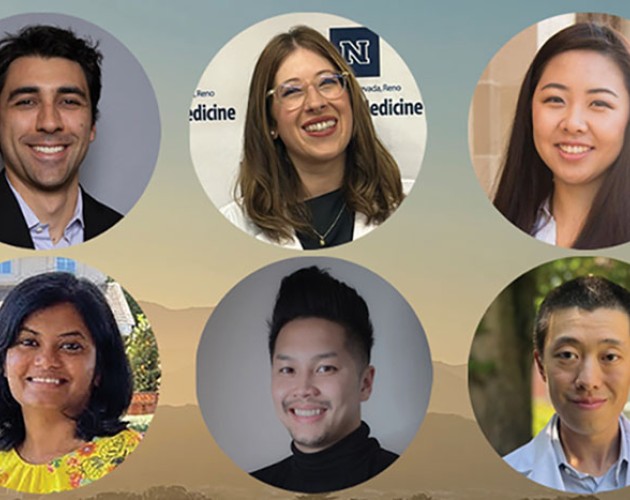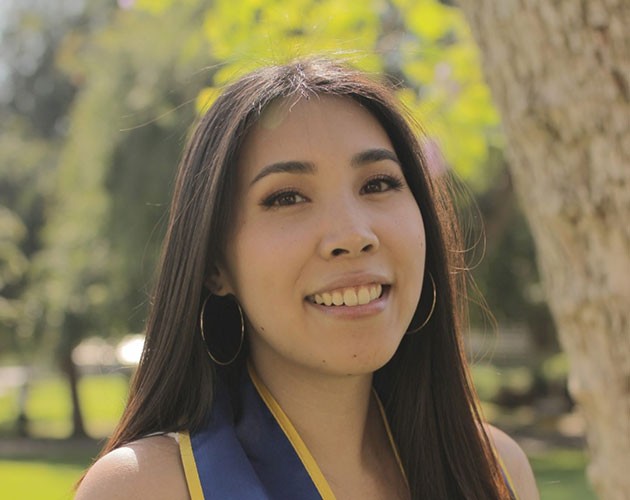Moving to the Other Side of the Glass

The draw to sciences—and continual learning—runs deep for Elliott Asarch. It’s what propelled him to study bioengineering at UCLA and then continue on at Roseman University of Health Sciences to earn a Pharm.D. and an M.B.A.
His fascination with drug development and public health spurred him to diligently work as a hospital pharmacist for eight years in California and Nevada.
In 2021—when COVID and public health led top news stories—Elliott couldn’t get enough information about the fast-tracked vaccine process and how quickly these vaccines were becoming available to the general public. For eight years, his work entailed delivery of medications that had already gone through clinical trials. In 2022, Elliott was ready to flip that paradigm and become an essential team member in moving innovative medications and treatments through the clinical trial process and into the hands of the pharmacist.
Diving head-first into this career change, Elliott secured a research assistant role at Jubilee Clinical Research. So enthused by the work he was doing, Elliott fast-tracked his career change and registered for our certificate just two months into the job.
Looking back, the certificate program broke down barriers for getting that first job.
What draws you to clinical research? Having worked in a pharmacy, I’d imagine you would want to see the process of where a drug came from? In clinical research, you're able to be at the onset of the product going to market.
Exactly! When you're in the clinical area—in the hospital or in the pharmacy—you look back, and say, “I want to use this drug in a certain population, but it wasn't originally studied in women, but we're now needing to use it in women.” Why were women not included in that study? Why were things historically done that way? Always questioning, “What would I do differently?” If I could be involved, maybe I would do things slightly differently.
And so, clinical trials were always a passion of mine, but it was really challenging to get that work experience or get that knowledge base to cross over from the hospital pharmacy position. Looking back, the certificate program broke down barriers for getting that first job.
I could dive into my lectures and the reading assignments and then apply those learnings to the work that I was doing.
You were working part time while taking courses. How did the work and curriculum play together?
I found it to be a nice complement to the work experience that I was getting—it was very synergistic in that I was able to reflect on the coursework and thereby strengthen the work that I was doing.
At that time, I was working at DGN Technologies as a clinical assistant. My work experience really helped me to make the most out of the class. In some of the clinical trials that I was involved with, I had some obstacles that I could apply the coursework to solve. For example, vendor selection and how to pick the right companies to work with. Some of the projects in class mirrored what I was working on at my company.
I was able to get the most out of my work. There were some projects where I didn’t have a lot of instruction, and without the classwork I would have needed more hand holding. But I could dive into my lectures and the reading assignments and then apply those learnings to the work that I was doing.
I was able to complete the four classes in less than a year, and right afterward, I was hired at a Bay Area–based medical device company in Silicon Valley called Intuitive as a clinical research associate where I support pharmaceutical clinical trials. So completing the certificate was a success. In that one year of taking classes, I was able to not only strengthen my work experience, but I also got a full-time position in the industry—it worked out really well!
That’s fantastic! What drew you to taking our certificate?
The coursework—that was really the motivating factor. All four courses directly applied to the job that I was looking for. So to be able to show that I have that experience was a very good selling point.
In addition, there was a feeling of being in a cohort of classmates: Right from that first class, there were a handful of us who continued on the same path in taking the courses in order. Having those connections, we began to keep in touch outside of the discussion boards, which was really nice.
It also felt like a preview of what the industry is like, in terms of the people with whom I’d eventually be working with. There were some Ph.D.s who were on the preclinical side of drug discovery who wanted to get more into the clinical side. There was a wide array of people with different amounts of work experience. There were a few who had very little work experience and were looking to get into this as a career.
The instructors had a wealth of knowledge to share—from case studies with real-world examples to directing us to resources available from the FDA or other industry organizations.
What about your interaction with instructors?
We had good discussions online and the instructors had a wealth of knowledge to share—from case studies with real-world examples to directing us to resources available from the FDA or other industry organizations. They also guided us and gave us some good advice and insights into how the job market was performing.
What does earning the certificate mean to you, both professionally and personally?
I've done a lot of educational programs, but this one means more because clinical research is such a passion of mine. Earning the certificate really opened doors for me in the industry. Whether it was during a job interview or having the confidence in knowing that I can do the job and be competitive with other applicants, it was definitely meaningful.
Where can we find you in five years?
I hope to continue my career progression in clinical trials to make an impact. Right now, I'm doing nationwide clinical trials and I’d like to expand to more global clinical trials. That was one of the interesting parts of the coursework in terms of looking at how to apply and run clinical trials around the world, especially in countries that have different health care systems and different regulations.
What advice would you give to someone who is just starting a certificate on how to succeed?
Try your best to get some work experience to complement the courses. It could be doing an internship, volunteering or job-shadowing—getting a foothold into those roles. It'll allow you to have a better context of the field and make the most out of your education.


